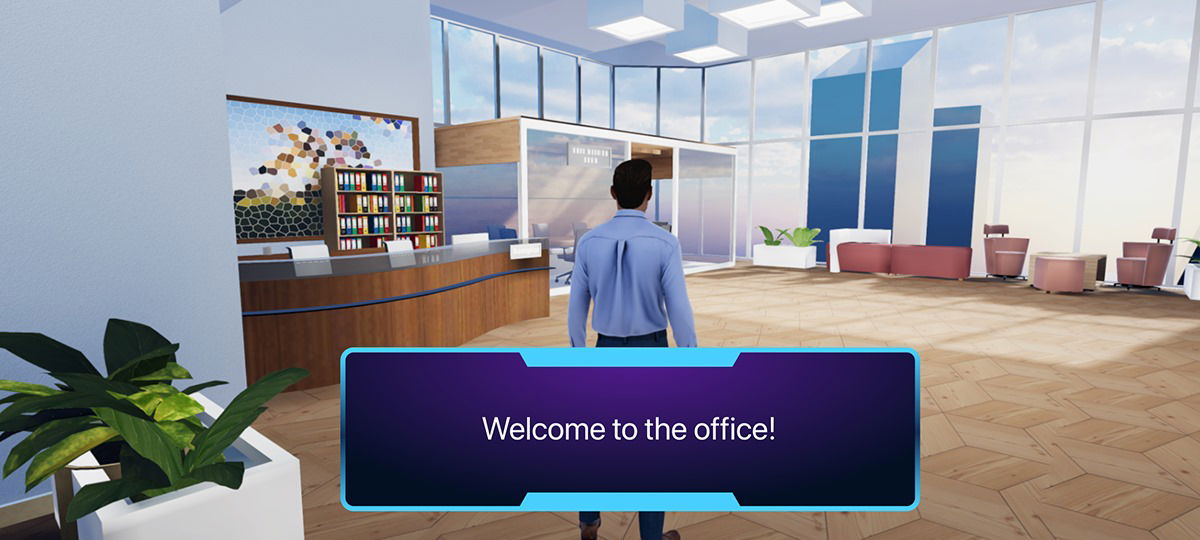Effective employee onboarding metrics are crucial for organisations to ensure new hires seamlessly integrate into their roles. One innovative approach to onboarding is through game-based induction, which enhances engagement and motivation.
In this blog, we will explore the importance and performance of gamified onboarding and discuss key metrics that can be used to evaluate employee integration.
Analytics and Performance Metrics
To measure the performance of gamified onboarding programmes, organisations must gather relevant data and analyse it effectively. Here are some key metrics that can be used:
- Completion Rate: This metric measures the percentage of employees who complete the gamified onboarding programme. A high completion rate indicates that employees are actively engaged and motivated throughout the process.
- Time-to-Proficiency: Time-to-proficiency measures how long it takes for new hires to become proficient in their roles after completing the gamified onboarding programme. A shorter time-to-proficiency suggests that the programme has effectively equipped employees with the necessary knowledge and skills.
- Knowledge Retention: Assessing knowledge retention helps determine if employees have retained essential information from the gamified onboarding programme over time. This metric can be measured through quizzes or assessments conducted at regular intervals.
Feedback Loops for Improvement
Feedback loops play a crucial role in identifying areas of improvement and enhancing employee integration. Here’s how organisations can establish effective feedback loops:
- Surveys and Questionnaires: Conducting surveys or questionnaires allows new hires to share their experiences with the game-based induction openly. Feedback can be collected on various aspects, such as content relevance, clarity of instructions and overall engagement.
- One-on-One Feedback Sessions: Encouraging managers to have regular one-on-one feedback sessions with new hires provides an opportunity for personalised feedback. This allows employees to express their concerns, ask questions and receive guidance on areas where they may need additional support.
Adjusting Gamification Based on Outcomes
Analysing the outcomes of gamified onboarding programmes is crucial for making necessary adjustments and ensuring continued success. Here are a few strategies to consider:
- Content Optimisation: If completion rates are low or knowledge retention is an issue, it may be necessary to review and optimise the content of the game-based induction. This could involve simplifying complex concepts, incorporating interactive elements or providing additional resources.
- Personalisation: Tailoring the gamified onboarding experience to individual employees’ needs can enhance engagement and effectiveness. By leveraging data analytics, organisations can gather insights into each employee’s preferences and adapt the programme accordingly.
Long-term Engagement Strategies
Sustaining employee engagement beyond the initial onboarding phase is essential for long-term success. Here are some strategies that organisations can employ:
- Continuous Learning Opportunities: Offering ongoing learning opportunities through gamified platforms keeps employees engaged and motivated. This could include micro-learning modules or challenges that allow employees to further develop their skills and knowledge.
- Leaderboards and Rewards: Introducing leaderboards and rewards within the gamified onboarding programme creates healthy competition among employees while recognising their achievements. This incentivises participation and fosters a sense of accomplishment.
Imarticus Game Studio’s Game-Based Onboarding Solutions
To facilitate effective gamified onboarding experiences, Imarticus Game Studio offers comprehensive solutions tailored to meet organisational needs. The Game-Based Induction programmes are designed to enhance employee integration and provide a seamless transition into the workplace.
With an emphasis on analytics and performance metrics, Imarticus Game Studio’s solutions enable organisations to measure success accurately and make informed decisions for continuous improvement. If you want to transform your onboarding experience with gamification, visit Imarticus Learning today to explore their comprehensive solutions.



